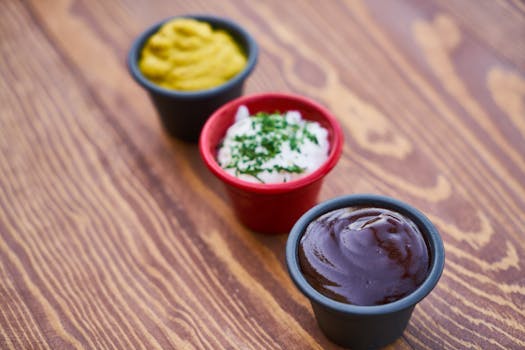Sunflower seeds are a popular snack for humans, but if you’re a dog owner, you may be wondering if your furry friend can safely enjoy them too. While sunflower seeds can be healthy in certain circumstances, there are important details to consider before sharing this treat with your dog. Let’s dive into everything you need to know about dogs and sunflower seeds!
🌻 Are Sunflower Seeds Safe for Dogs?
The short answer is yes, dogs can eat sunflower seeds, but only under specific conditions. Sunflower seeds are not toxic to dogs, and they do offer some nutritional benefits. However, there are risks involved, especially if the seeds are consumed in large quantities or in the wrong form.
To keep your dog safe, it’s essential to prepare sunflower seeds properly and limit how many they consume. Let’s explore the potential benefits and risks of sunflower seeds for dogs.
🌟 Nutritional Benefits of Sunflower Seeds for Dogs
When given in moderation, sunflower seeds can be a healthy addition to your dog’s diet. Here are some key benefits:
- Rich in healthy fats: Sunflower seeds are high in polyunsaturated and monounsaturated fats, which can support a shiny coat and healthy skin.
- Source of vitamin E: Vitamin E is an antioxidant that helps protect your dog’s cells and supports their immune system.
- Contains magnesium and selenium: These minerals are essential for bone health and cellular functions.
Despite these benefits, sunflower seeds are not a necessary part of your dog’s diet and should be treated as an occasional treat rather than a regular food source.
⚠️ Risks of Feeding Sunflower Seeds to Dogs
Although sunflower seeds are generally safe, there are some risks to be aware of:
- Shells can cause blockages: Sunflower seed shells are hard to digest and can lead to gastrointestinal blockages or irritation if swallowed.
- Salted seeds are harmful: Many sunflower seeds sold for human consumption are salted or seasoned, which can be toxic to dogs due to the high sodium content.
- Overeating leads to weight gain: Sunflower seeds are calorie-dense, so feeding too many can contribute to obesity in dogs.
- Choking hazard: Small dogs or those who eat too quickly may choke on seeds.
To avoid these issues, always prepare sunflower seeds properly before giving them to your dog.
✅ How to Safely Feed Sunflower Seeds to Your Dog
If you want to share sunflower seeds with your dog, follow these safety tips:
- Remove the shells: Only offer your dog unshelled sunflower seeds to prevent blockages and digestive issues.
- Choose unsalted seeds: Avoid sunflower seeds that are salted, flavored, or roasted in oils that may be harmful to dogs.
- Offer in moderation: Limit the amount to just a few seeds as an occasional treat to avoid calorie overload.
- Supervise your dog: Watch your dog while they’re eating sunflower seeds to ensure they chew them properly and don’t choke.
As a rule of thumb, treats like sunflower seeds should make up no more than 10% of your dog’s daily caloric intake. Always consult your veterinarian if you’re unsure about the right portion size for your dog’s breed, size, and activity level.
🩺 Symptoms to Watch For After Feeding Sunflower Seeds
If your dog accidentally eats too many sunflower seeds or consumes them with shells or salt, watch for these symptoms:
- Vomiting or diarrhea
- Abdominal pain or bloating
- Excessive thirst or urination (from salt poisoning)
- Lethargy or weakness
- Choking or difficulty swallowing
If you notice any of these symptoms, contact your veterinarian immediately for advice. In severe cases, such as intestinal blockages or salt toxicity, emergency treatment may be required.
🐾 Can Puppies Eat Sunflower Seeds?
Puppies have more sensitive digestive systems than adult dogs, so it’s best to avoid giving them sunflower seeds altogether. While small amounts of unsalted, shelled seeds may not cause harm, it’s safer to stick to puppy-specific treats that are formulated for their needs.
If you’re looking for a healthy way to reward your puppy, consider using small pieces of plain cooked chicken, carrots, or store-bought puppy treats instead.
FAQs
Can dogs eat sunflower seed butter?
Yes, dogs can eat sunflower seed butter in small amounts, as long as it’s unsalted and doesn’t contain added sugars or xylitol (a toxic sweetener for dogs).
What happens if my dog eats sunflower seed shells?
Sunflower seed shells can cause digestive issues or blockages. Monitor your dog for symptoms like vomiting, diarrhea, or abdominal pain, and contact your vet if needed.
Are black oil sunflower seeds safe for dogs?
Black oil sunflower seeds are often used in bird feed and may not be safe for dogs due to their higher oil content and potential shell issues. Stick to regular unshelled, unsalted sunflower seeds instead.
Can sunflower seeds help my dog’s coat?
Yes, the healthy fats and vitamin E in sunflower seeds can promote a shiny coat and healthy skin when given in moderation.
Should I consult a vet before giving sunflower seeds to my dog?
It’s always a good idea to consult your veterinarian before introducing new foods to your dog’s diet, especially if your dog has existing health conditions or dietary restrictions.
References
Book a $49 online vet consultation at https://www.dialavet.com for fast, expert advice.








